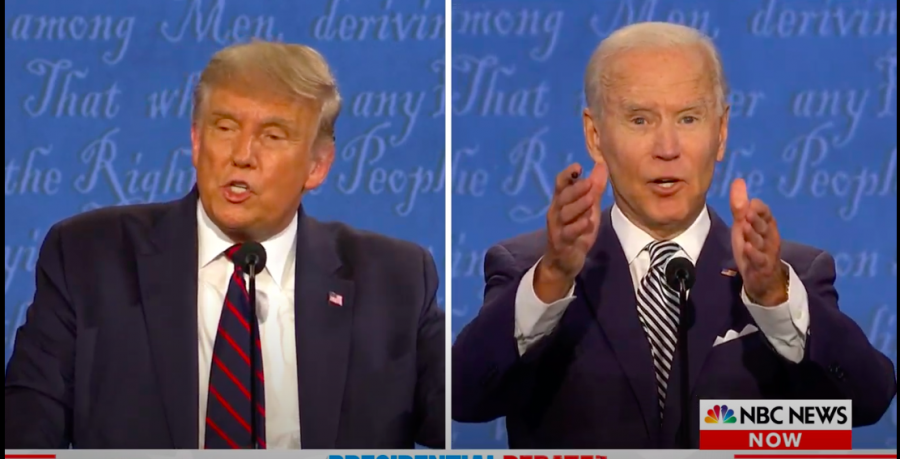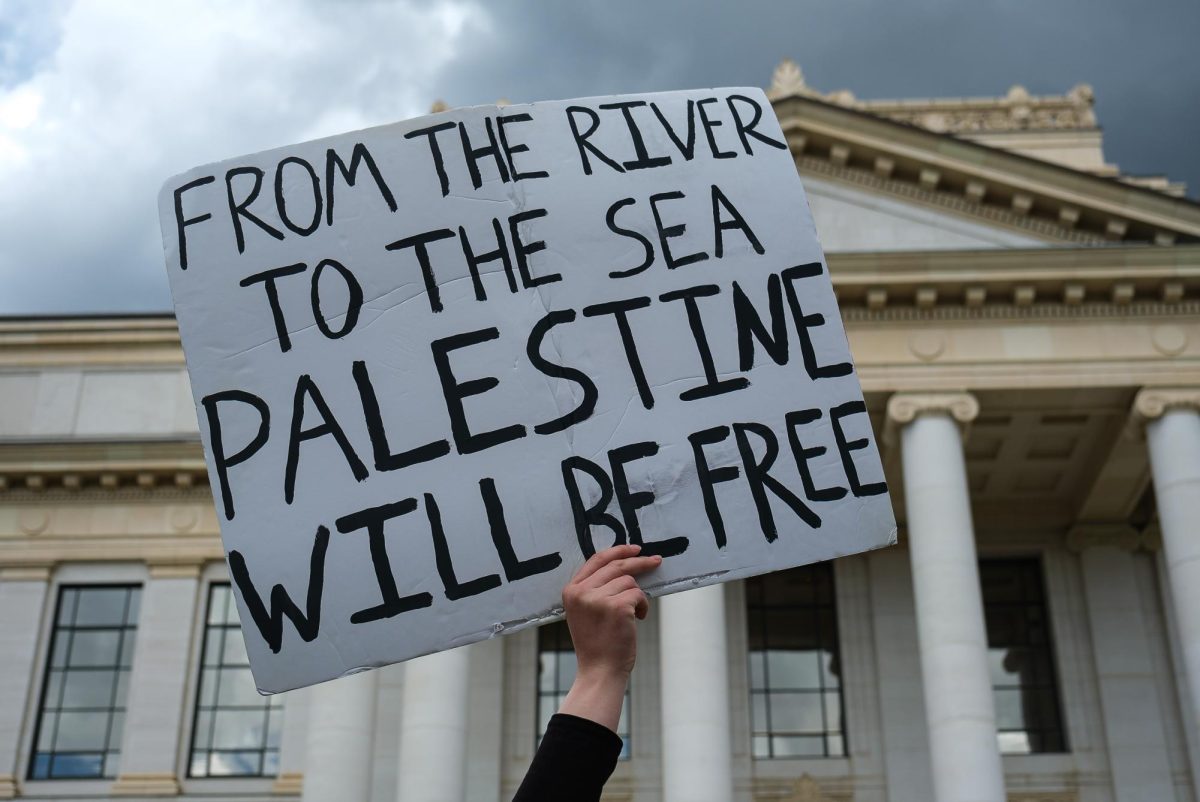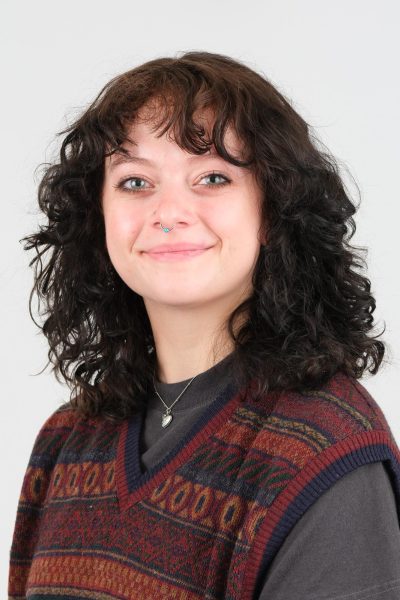“Throughout our nation’s history, college campuses have been a focal point for deep societal divisions and unrest,” began a letter released this week by University of Utah President Taylor Randall. “Our state’s flagship institution is no exception.”
On April 29, roughly 300 people gathered in a pro-Palestinian demonstration organized by Mecha to demand the U disclose and divest from its ties to Israel. The protesters established a solidarity camp for Gaza in Presidents’ Circle and remained there for several hours. Community members donated supplies and organizers established communal food and medic tents. Later that night, police dressed in riot gear began tearing down tents and pushing demonstrators toward University Street. The confrontation cleared the encampment entirely and resulted in 19 arrests.
Since then, Mecha has organized a protest that primarily took place at the county jail and another during the U’s commencement ceremony to reiterate their demands. Police arrested Mecha organizers at both demonstrations.
The events on April 29 also inspired a group of U faculty to release a letter of solidarity for the student protesters. The letter has received over 200 signatures.
Initially published in Deseret News, Randall’s letter addressed Mecha’s divestment demands and emphasized the U’s commitment to protecting peaceful — and lawful — protests.
“I will share here the same two-fold message we share on campus with our students and faculty and the demonstrators who have no campus affiliation: (1) We welcome all lawful manifestations of speech and expression,” Randall’s letter reads. “(2) You must peacefully assemble within the confines of the law.”
Randall cited university policies that prohibit establishing structures or camps overnight without permits. He also pointed to an administrative code that makes exceptions to this rule for camping at ticketing events or tailgating. The U has received criticism for permitting on-campus camping for ESPN’s College Gameday while choosing to clear April 29’s solidarity encampment.
“The implication that contrast suggests is that the university permits some kind of encampments and does not permit others depending on the kind of speech that it’s attached to, and depending on whether the university agrees with that speech,” explained Richard Preiss, an associate English professor at the U.
Preiss is the incoming President-Elect of the Academic Senate, but he spoke with The Daily Utah Chronicle on his own behalf. Preiss has not signed the faculty letter of solidarity but assisted in editing it before its release.
Regarding Randall’s letter, Preiss thought it failed to thoroughly explain the use of police force on April 29.
“It sort of leaves some things out, like it purports to defend why police action was necessary, but it doesn’t actually explain why the police were called out in the first place,” Preiss said. “That seems to have been a pre-emptive action that the University took in anticipation of exactly the result that ensued.”
Preiss added he thought Randall could better explain why the U cannot explore divestment.
“In Utah, state law specifies two broad investment principles: institutional neutrality and prudent money management,” Randall said in his letter. “Both principles limit the U’s ability to divest for geopolitical reasons.”
Randall cited Utah Code 63G-27-201, which prohibits government organizations from contracting with businesses that boycott Israel. As a public university, the U is governed by elected officials and state law, Randall wrote, which makes divestment difficult.
Maile Arvin, director of Pacific Islands Studies at the U and associate professor in History and Gender Studies, reiterated some of Preiss’ criticism with Randall’s letter.
“I think it was a pretty measured response,” Arvin said. “It did address, to some extent, student demands for divestment. Although, I think there’s still a lot of questions left there that could be pursued in greater detail. However, it didn’t really address at all our concerns about police violence.”
“Many demonstrators at the U on April 29 and 30 were peaceful and law abiding,” Randall’s letter states. “Others were not. After hours of discussion in good faith and after giving multiple warnings, some protestors decided to ignore state law. There are consequences to such actions.”
While Arvin did appreciate that Randall’s letter acknowledged the depth of concern and anger that students, faculty and staff felt while observing the human suffering in Gaza, Arvin would have liked to see an explanation detailing why police from five different departments were called to the protest.
“Faculty members’ job is first and foremost to ensure that our students are safe and that their freedom of political expression, their freedom of speech is protected,” Preiss said. “Those things were violated on April 29, and we don’t really have an explanation of why that was necessary.”
Randall argued that important social movements often start at college campuses, but that’s not where they end. He pointed to the 19th Amendment as a resolution to the women’s suffrage movement and the Civil Rights Act as a resolution to the Civil Rights Movement.
“We all have a responsibility to call on our elected officials to work toward solutions that will lead to lasting peace,” Randall wrote.
Arvin said that a group of faculty who wrote the solidarity letter received an invitation on Wednesday to meet with Randall this coming week.















Anonymous • May 14, 2024 at 2:22 pm
Honestly don’t understand how some people don’t get the point of his letter. The police were brought in because THEY BROKE THE LAW, not because of the speech/protest they were making. The first amendment wouldn’t protect me if I committed a school shooting to protest policy or robbed a store in protest of their high prices, so it seems foolish to claim that your free speech is being taken away in this case that is also an unlawful means of protesting a cause. As president Taylor Randal said, there are consequences of breaking the law, and if the law hadn’t been broke then the U would have welcomed the protest. I don’t personally have an opinion of the Israel/Palestine conflict personally, but it certainly doesn’t help the case of protestors for Palestine when they break the law and then try to claim it as “free speech”
lilie • May 11, 2024 at 11:59 pm
if the u could divest with south africa, then the u can divest with israel.